new posts in all blogs
Viewing: Blog Posts Tagged with: translations, Most Recent at Top [Help]
Results 1 - 25 of 43
How to use this Page
You are viewing the most recent posts tagged with the words: translations in the JacketFlap blog reader. What is a tag? Think of a tag as a keyword or category label. Tags can both help you find posts on JacketFlap.com as well as provide an easy way for you to "remember" and classify posts for later recall. Try adding a tag yourself by clicking "Add a tag" below a post's header. Scroll down through the list of Recent Posts in the left column and click on a post title that sounds interesting. You can view all posts from a specific blog by clicking the Blog name in the right column, or you can click a 'More Posts from this Blog' link in any individual post.

By:
Betsy Bird,
on 12/11/2016
Blog:
A Fuse #8 Production
(
Login to Add to MyJacketFlap)
JacketFlap tags:
Best Books,
translations,
children's literature in translation,
translated picture books,
imports,
Best Books of 2016,
2016 imports,
2016 translated children's books,
31 days 31 lists,
Add a tag
 I know it gets confusing but this list is a bit different from the Calde-not list from a couple days ago. The reason is simple. While the Calde-not list looks primarily at books with illustrations so distinguished they could easily win major illustration awards if given half a chance, this is list is more for those books that may not blow you away on a first glance, but that make our publishing landscape richer for their very existence. I was inordinately pleased after I read each and every one of these books. They’re a little peculiar, distinctly different from what you’ll find in the American market, and altogether remarkable.
I know it gets confusing but this list is a bit different from the Calde-not list from a couple days ago. The reason is simple. While the Calde-not list looks primarily at books with illustrations so distinguished they could easily win major illustration awards if given half a chance, this is list is more for those books that may not blow you away on a first glance, but that make our publishing landscape richer for their very existence. I was inordinately pleased after I read each and every one of these books. They’re a little peculiar, distinctly different from what you’ll find in the American market, and altogether remarkable.
2016 International Imports for Kids
Picture Books
Chirri & Chirra by Yuki Kaneko
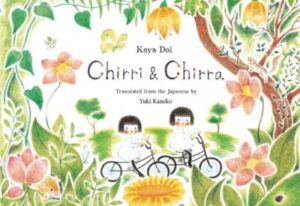
Sweet and dreamlike, this Japanese import has a light and sweetness to it that will simultaneously make it deeply beloved in a few select homes, while also not drawing so much attention to itself that it ever becomes much more than a cult hit in the States. Do yourself a favor and discover it. It’s the kind of book you want to influence the dreams of your children with.
Cry, Heart, But Never Break by Glenn Ringtved, ill. By Charlotte Pardi
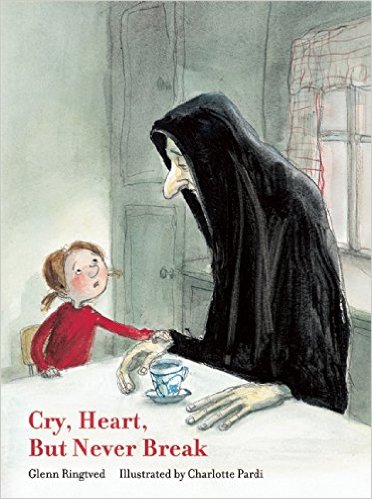
This Danish import just reminds us that when it comes to poetic picture books about death, American just don’t deal very well. Our death books tend to either be straightforward guides (here’s what to expect, etc.) or complete and utter fanciful metaphors. This book feels like it’s both fable and straightforward talk. A rare thing.
The Day I Became a Bird by Ingrid Chabbert, ill. Guridi
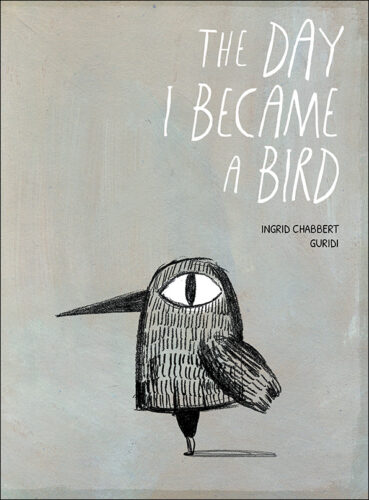
Kirkus didn’t get it. SLJ did. In this story a boy falls in love with a bird-loving girl. To get her attention he constructs an elaborate bird costume. Make of that what you will.
Don’t Cross the Line! by Bernardo P. Caravalho, ill. Isavel Martins
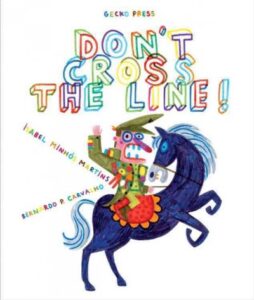
Portugal! And an interesting book at that. This one combines the interactive qualities of something like Don’t Let the Pigeon Drive the Bus or Press Here with a political statement about thwarting unjust authority. This book may get a bit more play in the coming years.
Look Up by Jung Jin-Ho
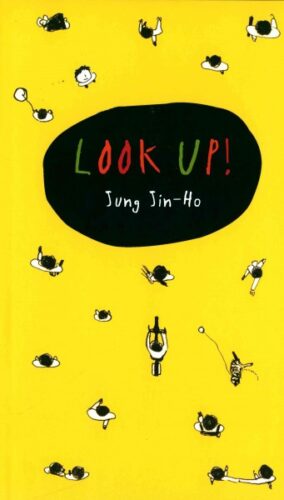
I love this one since it confronts and rearranges the reading experience and expectations of children. Add in the fact that it stars a girl in a wheelchair (who is not solely defined as a person from that chair) and you’ve got a golden book on your hands.
My Baby Crocodile by Gaetan Doremus
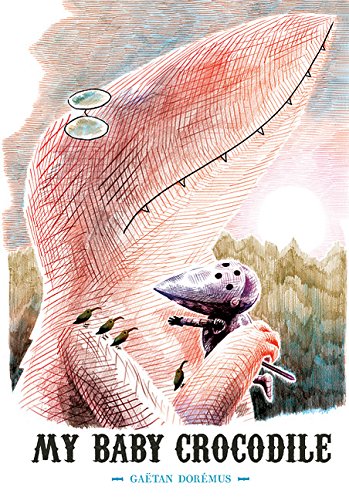
Funny story. I cannot read this book without setting it to the tune of “My Funny Valentine”. I suspect that this is because the two phrases share the same number of syllables more than anything else, but maybe it also has to do with the strange nature of love celebrated in this book. The story is between a near-sighted crocodile that “adopts” a knight, thinking he’s a baby croc. It’s odd and sweet and strange and funny. Memorable too.
A Promise Is a Promise by Knister, ill. Eve Tharlet
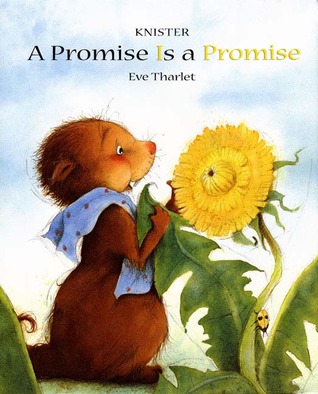
I found this one interesting perhaps because of the deep-seated feeling of betrayal our hero suffers in the course of things. It’s a very childlike understanding of an impossible promise and I like how it’s handled. A book that belies its cutesy cover.
Undercover by Bastien Contraire
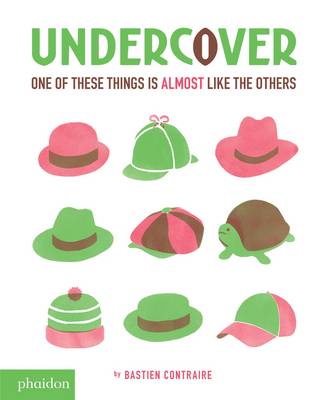
I absolutely adore this book. It’s a story where you have to spot the thing that doesn’t match. Contraire, living up to his name, doesn’t make it easy on you, though. The cover alone should be enough to prove that to you.
What Color Is the Wind? By Anne Herbauts
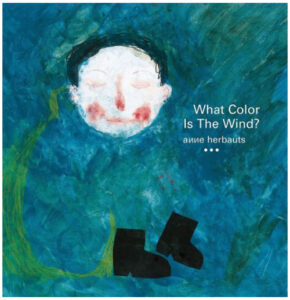
I’ve already reviewed it but if you somehow missed mention of this marvelous books about blindness and tactile response, now’s the time. You won’t find anything else like it on the market today.
Why Am I Here? by Constance Orbeck-Nilssen, ill. Akin Duzakin
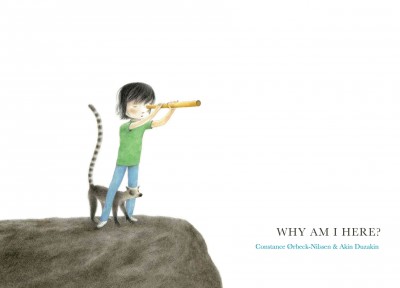
Big questions for little brains. I like this one a lot. Lemur or not lemur.
Middle Grade
The Birth of Kitaro by Shigeru Mizuki

Honestly the backmatter explaining the entire history of the yokai in Japanese history and literature is some of the most fascinating stuff here. In a way, this book reads like what would have happened if Quasimodo turned into a superhero rather than a bell fantastic. I loved the peculiar (to me) nature of the storylines, the characters, and particularly the creatures.
The Heartless Troll by Oyvind Torseter
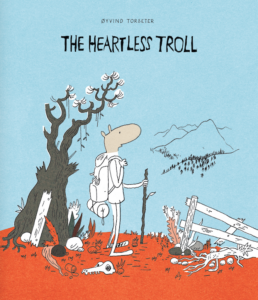
The troll is, without a doubt, one of the most horrific renderings I’ve seen in a children’s book in a long time. Which is to say – it’s awesome! Definitely hand this to older kids, but appreciate it on your own when you get a chance. As graphic novels go, there are few things to compare it to.
Under Earth / Under Water by Aleksandra Mizielinska and Daniel Mizielinski
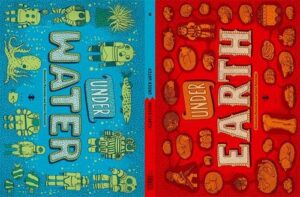
This Polish import is fantastic. There was a book of maps that came out from this couple previously. I’m not as big a fan of those, but what I am a fan of is learning about all that goes on below. Good times.
Misc
And just a quick shout-out to the Candied Plums titles that aren’t online yet. These are the real deal. I just adore them:
- Little Rabbit’s Questions by Dayong Gan, translated by Helen Wang (978194529270 – www.candiedplums.com)
- Picking Turnips by Xu Zhou, translated by Adam Lanphier (9781945295263 – www.candiedplums.com)
- Who Wants Candied Hawberries? by Dongni Bao, ill. Di Wu, translated by Adam Lanphier
Interested in the other lists of the month? Here’s the schedule so that you can keep checking back:
December 1 – Board Books
December 2 – Board Book Adaptations
December 3 – Nursery Rhymes
December 4 – Picture Book Readalouds
December 5 – Rhyming Picture Books
December 6 – Alphabet Books
December 7 – Funny Picture Books
December 8 – Calde-Nots
December 9 – Picture Book Reprints
December 10 – Math Picture Books
December 11 – Bilingual Books
December 12 – International Imports
December 13 – Books with a Message
December 14 – Fabulous Photography
December 15 – Fairy Tales / Folktales
December 16 – Oddest Books of the Year
December 17 – Older Picture Books
December 18 – Easy Books
December 19 – Early Chapter Books
December 20 – Graphic Novels
December 21 – Poetry
December 22 – Fictionalized Nonfiction
December 23 – American History
December 24 – Science & Nature Books
December 25 – Transcendent Holiday Titles
December 26 – Unique Biographies
December 27 – Nonfiction Picture Books
December 28 – Nonfiction Chapter Books
December 29 – Novel Reprints
December 30 – Novels
December 31 – Picture Books

“If we don’t offer children literature from other languages, we are starving them.” Philip Pullman (TES, 2005)
 Phew! I’d been planning on doing a round-up of some of the speeches and talks I sat in on at the ALA Conference in Orlando a week or so ago, only to find that I’d lost my notes. They have since resurfaced.
Phew! I’d been planning on doing a round-up of some of the speeches and talks I sat in on at the ALA Conference in Orlando a week or so ago, only to find that I’d lost my notes. They have since resurfaced.
When one attends an ALA Conference in full, it is useful to decide early what kind of talks you’d like to attend. Is your interest in copyright or preservation? Do you have more of a yen to learn about sustainable thinking, coding groups, STEM collaboration, or small scale digitization? This year I decided to concentrate more on international children’s literature. It’s an interest that has grown within me over the past few years and I was curious to learn more about the topic.
First up, Diverse Books from Across the Globe. Description: “How can the local library help voices from emerging markets and developing countries be heard? How can we make their books available to refugee populations and foreign language speakers across the United States? Join innovators from Library for All to look at how libraries can continue to support access to quality educational materials in an increasingly global context.” The panelists included Rebecca McDonald of Library for All, Kerri Poore of First Book, and Hannah Ehrlich of Lee & Low Books.
This was right up my alley. As I say, my interest in international literature for kids has peaked over the last few years, possibly kickstarted by an event held at The New School in NYC that addressed American discomfort with books from other nations. With all the talk of getting kids to read more diverse books, there’s been very little talk about getting kids to read books that are from a diverse range of countries. Windows and mirrors are great, but why do the windows always have to look at our own back yards? Now with the rise of Donald Trump and the recent Brexit vote, nativism is at an all-time high, making me wonder why we don’t talk more about the value of teaching kids about other cultures through those nations’ books. I’m no innocent. I don’t think the world’s problems can be solved if kids in Texas read more books written for kids in Iraq. Nor do I think that American discomfort with the art of other nations (whether it’s foreign films or translated novels) is relegated solely to picture books. That said, there is value in learning, at a young age, the different ways in which other nations and cultures tell their stories.
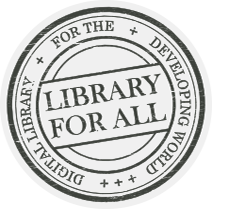 So! The talk! It was such an interesting collection of speakers. The focus of this particular panel was how to meet the needs of kids in the United States that have families from international cultures. I confess that I’d never heard of Library for All before. Though their primary purpose is to bring books to poverty stricken areas of the world, the organization also works closely with First Book to bring books from other countries to kids here in America. What struck me as particularly interesting is how they will essentially become book detectives for specific cultures and languages. Which is to say, they’ll go into other countries to seek out and find books that would otherwise never make it to American shores.
So! The talk! It was such an interesting collection of speakers. The focus of this particular panel was how to meet the needs of kids in the United States that have families from international cultures. I confess that I’d never heard of Library for All before. Though their primary purpose is to bring books to poverty stricken areas of the world, the organization also works closely with First Book to bring books from other countries to kids here in America. What struck me as particularly interesting is how they will essentially become book detectives for specific cultures and languages. Which is to say, they’ll go into other countries to seek out and find books that would otherwise never make it to American shores.
When it was time for questions I asked how librarians can work to promote international books here in the United States. There are some problems with doing so, of course. There is, and has always been, a marked preference for diverse American books vs. diverse international literature. Add in the fact that such books can only win a couple awards here and there, and there’s very little incentive on the part of the publishers to promote or distribute them.
In answering it was Hannah Ehrlich who gave me quite a lot to chew on. She pointed out to me (and this is key) that this isn’t just a children’s book problem. The wider difficulty comes with getting Americans as a whole used to different narrative styles. One way to do this is to get very young children used to these different kinds of books from the start.
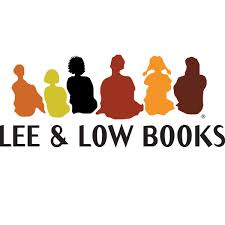 Another factor? The discoverability of international children’s book is key. Visibility is, in many ways, the greatest hurdle to overcome. That’s why we have USBBY lists like their yearly release of Outstanding International Books (you can find the 2016 list here). But the greatest hurdle? Getting such books into curriculum. To do this, publishers like Lee & Low work with the school and library market. The problem is that the text complexity of these books is often their downfall. Books written for foreign markets don’t care two bits about leveling. As a result, they’re often kept out of those schools that live and die by Fountas and Pinnell and their ilk.
Another factor? The discoverability of international children’s book is key. Visibility is, in many ways, the greatest hurdle to overcome. That’s why we have USBBY lists like their yearly release of Outstanding International Books (you can find the 2016 list here). But the greatest hurdle? Getting such books into curriculum. To do this, publishers like Lee & Low work with the school and library market. The problem is that the text complexity of these books is often their downfall. Books written for foreign markets don’t care two bits about leveling. As a result, they’re often kept out of those schools that live and die by Fountas and Pinnell and their ilk.
So what can be done? The panelists had some excellent suggestions. First off, let’s be honest. International children’s literature can sometimes be a hard sell. You can’t introduce these books to Americans cold. If you’re going to introduce a global perspective into your classroom, you need to foster a dialogue around these books. As for librarians, do displays of translated children’s books! Start international book clubs where you highlight a different country every month. And be aware that some types of books simply do not exist in other countries. Young adult literature, for example, just isn’t an age level designation in some places.
It was a good talk.
The second one I attended a little later was entitled Conversation Starter: Other People’s Voices: Using Global Literature in Translation to Reimagine Diversity in Libraries. Its panel consisted of Rachel Hildebrandt, Marc Aronson, and moderator Doris Gebel.
The problem? I had difficulty finding the room and missed Marc Aronson’s opening remarks. Too bad, since the man is a positive machine of good quotes. Here’s one I was able to catch:
“It is wrong to hem our children in to a national experience when they are living an international experience.”
Since the focus on this talk was, to a certain extent, translation, I was particularly intrigued by a mention made of something called The Global Literature in Libraries Initiative. In June there was an excellent piece in YALSA’s The Hub blog explaining what this is. As their mission statement says:
“. . . the Global Literature in Libraries Initiative strives to raise the visibility of world literature for adults and children at the local, national and international levels. We intend to do so by facilitating close and direct collaboration between translators and librarians, because we believe translators are uniquely positioned to help librarians provide support and events to engage readers of all ages in a library framework that explores and celebrates literature from around the world.”
There are a lot of great points in the piece. For example, when talking about the lack of international books available to a lot of kids today in our increasingly interconnected global world it said that, “Librarians play a key role in counteracting this dangerous insularity.”
 On the panel, the panelists mentioned that our love affair with translation is a funny, fickle thing. We do well when it comes to Pippi Longstocking, but we’re not great when it comes to contemporary literature. That gives the U.S. book market, and American children’s books in general, cultural dominance. To get an outsider perspective is invaluable to kids today. For example, in 2004 Chronicle Books won the Batchelder Award for The Man Who Went to the Far Side of the Moon: The Story of Apollo 11 Astronaut Michael Collins by Bea Uusma Schyffert, translated from the Swedish by Emi Guner. And let me tell you, our space program looks a LOT different when its story is told by someone other than rah-rah Americans.
On the panel, the panelists mentioned that our love affair with translation is a funny, fickle thing. We do well when it comes to Pippi Longstocking, but we’re not great when it comes to contemporary literature. That gives the U.S. book market, and American children’s books in general, cultural dominance. To get an outsider perspective is invaluable to kids today. For example, in 2004 Chronicle Books won the Batchelder Award for The Man Who Went to the Far Side of the Moon: The Story of Apollo 11 Astronaut Michael Collins by Bea Uusma Schyffert, translated from the Swedish by Emi Guner. And let me tell you, our space program looks a LOT different when its story is told by someone other than rah-rah Americans.
Doris Gebel urged the attendees to start kids young on international literature. Fail to do so and they won’t have a yearning for it as teens. Show them those “strange” books that confuse you, the adult. “Our young children need other books from other lands every day.”
Mention was made of the two major book lists/awards of translated children’s literature in the States. One is the Batchelder Award (named after Evanston librarian Mildred L. Batchelder so HOMETOWN PRIDE!) which is given each year. The International Books List (which I mentioned before) celebrates 40 books and breaks them down by age groups. That’s great, but the bulk of the books are from Western countries.
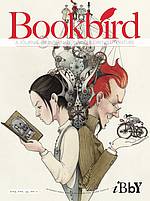 It was at this point that Marc Aronson spoke about the importance of distinctive translations. Take Anne Frank’s diary, for example. The version we read in schools is a very particular rendering. A lot of people would be shocked to hear that there are different versions out there. This reminded me of an article I read in Book Bird (a fantastic international children’s book periodical) years ago about how translating Hans Christian Andersen changes the meaning of his stories, depending on the translator. Until I read that piece it wasn’t something I’d thought about. As Marc said, “Translation is a creative act.” Mention was made at this time of the fact that for the very first time a woman has translated an edition of Madame Bovary. Meanwhile the famous translator of 100 Years of Solitude just died. If you think you know that book and you speak English, you only know his version.
It was at this point that Marc Aronson spoke about the importance of distinctive translations. Take Anne Frank’s diary, for example. The version we read in schools is a very particular rendering. A lot of people would be shocked to hear that there are different versions out there. This reminded me of an article I read in Book Bird (a fantastic international children’s book periodical) years ago about how translating Hans Christian Andersen changes the meaning of his stories, depending on the translator. Until I read that piece it wasn’t something I’d thought about. As Marc said, “Translation is a creative act.” Mention was made at this time of the fact that for the very first time a woman has translated an edition of Madame Bovary. Meanwhile the famous translator of 100 Years of Solitude just died. If you think you know that book and you speak English, you only know his version.
Today, things are perking up. In the last five years we’ve seen more small independent presses translating children’s books than ever before. Often these publishers are their own translators. Look at that USBBY list. It’s almost entirely small presses. And if these small presses don’t get reviewed in most of the journals out there (Kirkus is beloved to me because they take special care in reviewing the little guys) then the books just don’t get any attention.
When the audience members came up to speak, we heard some fascinating takes on all this. One woman said that the bulk of books translated from Colombia in the United States are about losing weight. She has Colombian immigrants in her library wondering aloud to her why Americans want them to lose weight so much, but that’s just what’s (weirdly) available.
So let’s talk solutions. What can libraries do to promote translated materials? Well, we could work with our immigrant communities more. Doris also pointed out that storytimes of translated books and library displays of translations could be useful as well. That got me to thinking how cool it would be if someone were to create lists like, “Top Ten Kids’ Books Translated from German” or “Top Ten Kids’ Books Translated from Swahili”. Or by country!
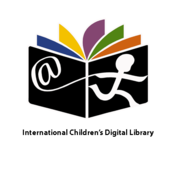 Which finally brings us to the International Digital Children’s Library. If you haven’t seen it yet, please check it out. Seeking to serve the international community, the site makes, “the best in children’s literature available online free of charge.”
Which finally brings us to the International Digital Children’s Library. If you haven’t seen it yet, please check it out. Seeking to serve the international community, the site makes, “the best in children’s literature available online free of charge.”
Also mentioned was the collection at Worlds of Words, at the University of Arizona. The description reads, “Worlds of Words is committed to providing a range of resources to encourage educators at all levels to integrate global literature into the lives of children. The resources on this site grew out of work in schools around the world and the identification of needs…”
Thanks to both panels for this fascinating exchange of ideas. Much to chew on here.

In supporting the #PicturesMeanBusiness campaign to get illustrators properly credited for their work, I keep coming across the very similar #NameTheTranslator campaign for translator credits. And it makes sense to campaign for both at the same time, so we don't have to do everything all over again.
Translators have an even harder time than illustrators trying to build up their name as the brand for their business. Whereas most people can look quickly at an illustration and get a sense of it, very few people speak a second language fluently enough to check that an original story and a translated version both read well. It's exciting getting foreign editions of my books with Philip Reeve through the post, but I'm not fluent enough even in French or Russian, to catch any subtle nuances, and the rest could be in Martian for all I know. So unless a native speaker reports back to me, or the book wins an award, I have no idea how well our texts are translated!
But the translator's work means everything to how well the book will go down with people who read it in languages other than English. I don't have much contact with translators, other than on Twitter with Sandra Hessels who works freelance for Veltman, our Dutch publisher. So it was lovely when the Hungarian translator of Oliver and the Seawigs, Örkény Ajkay, popped up with an e-mail to say hello. I thought I'd feature him here on my blog so you can see a little bit of what goes into translating our books.

Sarah: Örkény, you're so important to our book with Hungarian publisher Móra, but writer and illustrators usually don't learn very much about our translators! We want to 'name the translator', but often that's all we can do! I wish we could do more to big you up.
Örkény: It’s so nice to hear about support for translator-awareness! We're used to saying, a bit ironically, that there are 3 true rewards for a literary translator:
1. Copyright © symbol in the colophon next to their name,
2. To read their name in print,
3. Readers’ compliments about the author of the work they translated.
The latter is the best, of course, meaning that the translator managed to convey messages and meaning of the original, and acted like a thin, transparent layer, a delicate interface of some sort, between author’s thoughts and absorbing minds. Okay, interpreters do the same on a daily basis, they are even more the unsung heroes type.
S: You say your career as a translator was kickstarted by a video game! Can you tell me a bit about that?
O: Back in the early 90s I played an adventure video game called Neuromancer with my friends. A friend of mine mentioned he had the book with the same title. This sounded exciting, so I got hold of a copy too, and after reading some chapters, I decided to translate it – without any previous experience in literary translation! It was a sudden, crazy idea, but I liked that. Translating this classic and important SF novel was extremely hard for a beginner, but fortunately I received heaps of help from the author himself! And after years of translation, I heavily revised my First Translation for reprints.
S: So you focus on Science Fiction?
O: Well, most of my translations are SF novels and short stories, yes. But many of them could be tagged as contemporary fiction. And I think fiction is the part to be emphasized.
S: How did you come across Oliver and the Seawigs? What did you think of it?
O: My then-prospective editor was seeking translators for various titles, and offered me this one. I devoured it, and thought it’s zany, it’s fun, and it’s adventure and fiction at its best. Made me recall some great funny adventure games, such as Day of the Tentacle and the Monkey Island series, so I fell in love with the book, even before I finished it.

S: Hurrah! And thank you so much for your hard work! What's it like to translate into Hungarian? Your language is so different to English!
O: Hungarian is unrelated to most European languages, and has its own quirks. For example, there is no gender in our grammar. Everybody in 3rd person singular is “ő” [o with double acute accent]. Where in English “he” or ”she” is used as needed, in Hungarian we use other words to express gender. Sometimes this requires extra creativity.
Hungarian also uses multiple suffixes extensively. Words can have various endings, depending on the given grammatical (accusative, genitive, locative, instrumental etc.) case. This can be challenging, especially when English words are used in different cases but remain the same, or when translated text should fit into an illustration.

S: What was the most challenging part to translate in Oliver and the Seawigs?
O: Besides jokes that cannot be translated directly, it was the names, I think. To find proper/common nouns for all those fantastic characters and places. The idea for proper nouns was that some names should look and feel like foreign names but should read easily in Hungarian, some should be funny in Hungarian, and all should suggest the original meaning, if any. Even the title of the book was hard to translate properly.
S: What does Olivér és a tengerkócok mean in Hungarian?
O: 'Olivér' is the Hungarian version of Oliver. The words 'és a' means 'and the'. We opted out of translating 'sea wigs' directly because it would be 'tengeri parókák' and is too long to fit in.
'Tengerkócok' is a fabricated compound in plural. It’s a pun with 'tenger' (sea) and 'kenderkóc' (hemp fiber). Latter may trigger some maritime associations like hemp ropes or traditional caulking, thus I think it suits sea adventures well. The word 'kóc' itself approximately means 'tangled fiber', but can also mean 'hair(do)', especially a tangled, fuzzy one. It is the stem of the adjective 'kócos' which is used for someone whose hair is tangled, uncombed.
S: Ah, that's perfect! The pictures have a lot of interplay between Iris's wild hair and messy seaweed.
O: The '-ok' suffix at the end contains a '–k' which is the plural indicator, while the '-o-' comes in to dissolve consonant pileup and to ease pronunciation, with respect to notorious Hungarian vowel harmony.
S: Whoa... this sounds seriously complicated. What about some of the other names in the book?

O: Some names, like Deepwater Bay, Forgotten Mesa etc. were translated literally. The mermaid 'Iris' remained, just written in Hungarian form, 'Írisz'. 'Cliff'; was transformed into 'Szirtesó', being a portmanteau of 'szirt' (primer meaning of cliff) and 'tesó' which is derived from and used for 'testvér' (sibling) but also means 'buddy'. 'Crisp' became 'VanMersze'; which comes from the expression 'van mersze' meaning 'he/she has courage'. In this written form it has also a foreign German-ish, Dutch-ish look for Hungarian readers.
The 'Thurlstone' became 'Nagycudar' meaning 'the big(and)mean'. 'Mr Culpeper' became 'Paprimorc úr'(we put the 'Mr' behind the name). 'Paprimorc' is a portmanteau of 'paprika' (red pepper) and 'morcos' (morose).
S: Ha ha! Mr Morose Paprika! I love it.
O: 'St Porrocks' was a subject of long trying. The 'St' prefix in Hungarian is written in a full 'Szent-' form (too long), and looks way too Hungarian, suggesting a fictional local town. Which would have been confusing since Hungary is a landlocked country, and St Porrocks is by the sea. So I created the name 'Ottahollax' instead. This is a compressed and phonetically written form of 'ott, ahol laksz' which translates word for word as 'there, where you live'.
'The Hallowed Shallows' became 'a Mélységes Sekélyes'. The word 'mélységes' literally means 'it has depth' and means 'deep' as in 'deep secret', 'deep thoughts'. 'Sekélyes' means 'shallows'. Together it is an oxymoron which also suggests mystery, and both words have same structure, same adjective suffixes, same vowels, and 'LY' digraphs (it sounds as 'y' in 'maybe') so it looks pleasant as well.
S: Thank you so much for all your attention to detail! Will you be translating any other of the Reeve & McIntyre books?
O: Currently I'm working on Cakes in Space, which is a similarly lovely and challenging task for me. Most of it is done, but still needs to be finished and polished. And I hear Pugs barking in the distance.

Thank you, Örkény! You can read the first chapter of the Hungarian edition of Oliver and the Seawigs online here at the publisher's website.
riverSedge is a journal of art and literature with an understanding of its place in the nation in south Texas on the border . Its name reflects our specific river edge with an openness to publish writers who use English, Tex-Mex, and Spanish and also the edges shared by all the best contemporary writing and art.
Submit here.
General Submissions/Contest Guidelines
Deadline to Submit is 3/1/15
$5 submission fee in all genres (except book reviews)
3 prizes of $300 will be awarded in poetry, prose, and art. All entries are eligible for contest prizes. Dramatic scripts and graphic literature will be judged as prose.
Multiple submissions are welcome in all genres. Each submission should be submitted as a separate entry. In other words, do not send two or more entries as one document.
Previously unpublished work only. Self-published work (in print and/or on the web) is not eligible.
Simultaneous submissions are welcome, but please notify us of acceptance elsewhere as soon as possible.
Submissions in English, Spanish and anything in between are welcome.
Current staff, faculty, and students affiliated with UT-Pan American, UT-Brownsville, or South Texas College are not eligible to submit original work to riverSedge.
By: Jeanne Lyet Gassman,
on 1/12/2015
Blog:
Jeanne's Writing Desk
(
Login to Add to MyJacketFlap)
JacketFlap tags:
Experimental Writing,
Hybrid Works,
Poetry,
Fiction,
Fairy Tales,
Comics,
Fantasy,
Art,
Folklore,
Submissions,
Drama,
Magical Realism,
Genre Fiction,
Translations,
Add a tag
Submissions are now being accepted for the twelfth annual issue, The Ochre Issue, of Fairy Tale Review. The Ochre Issue has no particular theme—simply send your best fairy-tale work along the spectrum of mainstream to experimental, fabulist to realist.
We accept fiction, nonfiction, drama, and poetry, in English or in translation to English, along with scholarly, hybrid, and illustrated works (comics, black-line drawings, etc.).
The reading period will remain open until the issue is full—we predict closing it sometime in late spring or early summer.
For full guidelines, visit our website.
The Antioch University Los Angeles Creative Writing MFA program's bimonthly publication, Amuse-Bouche, is accepting submissions for its upcoming issues. Poetry, Fiction, Creative Nonfiction, YA, Translation, and Visual Art submissions are all welcome.
Visit Lunch Ticket's website for submission guidelines (please read guidelines CAREFULLY before submitting).
Deadline: January 31st, 2015.
Lunch Ticket is accepting submissions for its Summer/Fall 2014 issue from the following genres: Fiction, Flash Fiction, and Poetry, Writing for Young People, Visual Art, Translation / Multi-lingual texts & Creative Nonfiction.
Translated submissions: include original work with your translation, and a document showing that you have permission to publish the original work. Original, bilingual work may be submitted under the translation category; please indicate this in your cover letter. The responsibility for clearing rights, permissions for translated works, & the payment of any related fees, lies with the translator.
For any of the genre guidelines and submission manager (Please follow submission guidelines CAREFULLY), visit our website.
Deadline: October 31, 2014
By: Jeanne Lyet Gassman,
on 9/2/2014
Blog:
Jeanne's Writing Desk
(
Login to Add to MyJacketFlap)
JacketFlap tags:
Reviews,
Poetry,
Fiction,
Essays,
Art,
Photography,
Submissions,
Translations,
Photo Essays,
Add a tag
The Four Quarters Magazine
CALL FOR SUBMISSIONS : December, 2014.
Theme : NO MAN’S LAND
Deadline: 20th October, 2014
Guest Editor for the Issue : Dave Besseling
More than an excellent, absurdist 2001 film set during the Bosnian War, “No Man’s Land” is an idiom overused to in utility. It was a cliché long before I was born and learned what it meant or what a cliché was.
It’s one thing to dress-up a cliché, it’s another to reclaim it. So wax your mind clean, Mr. Miyagi-clean, and what does “No Man’s Land” come to reflect?
Is it that piece of geography where two gubernatorial borders don’t quite meet, or where they overlap?
The Age of Discovery was 400 years ago. You can barely outrun googlemaps lens these days. Is No Man’s Land somewhere unfound? A tribe brandishing spears on the beach as the motorboat approaches?
How rare and valuable are then these last pockets of “undiscovery”? And what does “discovery” mean in this digital age anyway?
Is it a “No Man’s Land”, that which lies outside the current boundaries of science?
Are we talking about a lesbian commune living off the grid somewhere in the mountains?
Is this void a philosophical concept to be appropriated by some kind of post-scientology or gone cult?
Something else entirely?
You tell us. In writing. And if we like your pitch we can all have fun with all the mindgames that result.
Eat a peach,
- Dave.
The deadline for submissions is 20th October, 2014. For submission guidelines, please refer to our submissions page.
contact email:
Only queries :
fourquartersmagazineATgmailDOTcom (Change AT to @ and DOT to . )
Only submissions:
submissionsFQMATgmailDOTcom (Change AT to @ and DOT to . )
Website
Facebook
Twitter
Lunch Ticket is now accepting submissions for our new Gabo Prize for Literature in Translation or Multi-Lingual Texts. Literary translation is crucial to writers of all cultures. Gabriel García Márquez completes what Edith Grossman details as a "Translation Loop" in her book, Why Translation Matters. Without a translator, Cervantes' Don Quixote would never have been read by William Faulkner, whose work, in turn, was translated into Spanish and influenced the work of Gabriel García Márquez, whose work has been translated into over a hundred languages, influencing authors from America to Japan. Translation makes for the possibility of untold numbers of these "loops of influence”—without which, we might never read the work of writers we could literally not imagine a world without (nor would most of us want to). For that reason, we have named this prize to honor "Gabo"�Gabriel García Márquez.
Please indicate whether your translation falls under poetry or prose, and refer to standard Lunch Ticket guidelines for work submitted in our preferred format.
Please include the original work along with your translation, and a document showing that you have permission to publish the original work. Original, bilingual work may be submitted under the translation category; if this describes your work, please indicate this clearly in your cover letter, as the permissions requirements for your submission will be different. Please note when submitting translations that the responsibility for clearing rights and permissions for the translated works, and the payment of any related fees, lies with the translator. If you are unsure whether or not you have obtained the correct permissions, we suggest you contact ALTA, or use their resources to ensure that you are in compliance with our requirements for publication: http://www.utdallas.edu/alta/publications/alta-guides.
The winner will receive $200, and the winning piece will be featured in the next issue of Lunch Ticket alongside the two semi-finalists.
For further details and submission manager, visit our website.
Illuminations: An International Magazine of Contemporary Writing is pleased to announce that it will resume publication after a one-year hiatus. The next issue, #30, will appear in May/June 2015.
lluminations made its first appearance in Columbia, South Carolina in 1982 under the editorship of Peter McMillan. The issue featured poems by Seamus Heaney, Stephen Spender, and newcomer Sam Boone. Subsequently edited from England, Japan, and Tanzania, the magazine returned to South Carolina in 1996 where it was edited by Simon Lewis and most recently by Meg Scott-Copses at The College of Charleston until 2011. Over these many years Illuminations has remained consistently true to its mission statement to publish new writers alongside some of the world’s finest, including Nadine Gordimer, James Merrill, Carol Ann Duffy, Dennis Brutus, Allen Tate, interviews with Tim O’Brien, and letters from Flannery O’Connor and Ezra Pound. A number of new poets whose early work appeared in Illuminations have gone on to win prizes and accolades, and we at Illuminations sincerely value the chance to promote the work of emerging writers.
As of August 1st, 2014, Illuminations is again accepting submissions of poetry. Please send no more than six poems at a time.
As a magazine devoted primarily to poetry we publish only one or two pieces of short fiction and/or non-fiction in any given year, and sometimes publish none at all.
Please make sure that anything you send us has not been published elsewhere already and is not currently under consideration elsewhere.
In the case of a piece translated from a language other than English, please send us the original along with your translation (this is for review purposes only; we generally publish the translation only).
Mailed submissions should be sent, with an accompanying SASE for response, to:
Simon Lewis, Editor, Illuminations
Department of English
College of Charleston
66 George Street
Charleston, SC 29424-0001
We also accept e-mailed submissions via Submittable. There is a $2:20 fee for e-mail submissions.
For further information, please contact the editor Simon Lewis at:
lewissATcofcDOTedu (Change AT to @ and DOT to . )

By: Alice,
on 7/31/2014
Blog:
OUPblog
(
Login to Add to MyJacketFlap)
JacketFlap tags:
Books,
Videos,
culture,
translation,
odyssey,
iliad,
translations,
the odyssey,
powell,
barry,
Humanities,
Homer,
*Featured,
Classics & Archaeology,
OUP USA HE,
Barry B. Powell,
ancient greek art,
a2qbseihmpu,
usm08ae6uzs,
kxiilflbc3a,
Add a tag
Homer’s epic poem The Odyssey recounts the 10-year journey of Odysseus from the fall of Troy to his return home to Ithaca. The story has continued to draw people in since its beginning in an oral tradition, through the first Greek writing and integration into the ancient education system, the numerous translations over the ages, and modern retellings. It has also been adapted to different artistic mediums from depictions on pottery, to scenes in mosaic, to film. We spoke with Barry B. Powell, author of a new free verse translation of The Odyssey, about how the story was embedded into ancient Greek life, why it continues to resonate today, and what translations capture about their contemporary cultures.
Visual representations of The Odyssey and understanding ancient Greek history
Click here to view the embedded video.
Why is The Odyssey still relevant in our modern culture?
Click here to view the embedded video.
On the over 130 translations of The Odyssey into English
Click here to view the embedded video.
Barry B. Powell is Halls-Bascom Professor of Classics Emeritus at the University of Wisconsin, Madison. His new free verse translation of The Odyssey was published by Oxford University Press in 2014. His translation of The Iliad was published by Oxford University Press in 2013. See previous blog posts from Barry B. Powell.
Subscribe to the OUPblog via email or RSS.
Subscribe to only classics and archaeology articles on the OUPblog via email or RSS.
The post The Odyssey in culture, ancient and modern appeared first on OUPblog.

Gulf Coast Prize in Translation
To celebrate translation and translators, Gulf Coast has created a new translation prize and we're pleased as punch about it! In 2014, the inaugural Gulf Coast Prize in Translation is open to poetry and will be judged by Jen Hofer, a Los Angeles-based poet, translator, social justice interpreter, teacher, urban cyclist, and co-founder with John Pluecker of the language justice and literary activism collaborative Antena. The winner of the prize will receive $1,000 and publication in the journal. To share the love, two honorable mentions will also appear in issue 27.2, due out in April 2015. Pretty fierce way to start a translation prize, non? Share this good news with your translator friends and colleagues!
2014 Barthelme Prize
Think good things come in small packages? So do we! Gulf Coast is now accepting entries for the 2014 Barthelme Prize for Short Prose, judged by Amy Hempel. This annual contest is open to pieces of prose poetry, flash fiction, and micro-essays of 500 words or fewer. Established in 2008, the contest awards its winner $1,000 and publication in the journal. Two honorable mentions will also appear in issue 27.2, due out in April 2015. So dust off those keyboards, sharpen those pencils, put in a new typewriter ribbon, and write something fabulous in its brevity.
Lunch Ticket is currently accepting submissions for Amuse-Bouche, its bimonthly production, until July 31, 2014.
Submissions in the following genres are all encouraged: fiction, nonfiction, poetry, writing for young people, visual art, and translation. Send us your best work!
For guidelines and submission manager, visit our website.
Words Beats & Life: Global Journal of Hip-Hop Culture, a peer reviewed journal of hip-hop studies is seeking poetry for itsBrazil Themed issue to be published winter 2014.
Since the early 90s, Brazilian hip-hop has had a significant musical presence in the country, especially in cities like Rio de Janeiro and São Paulo, where in the favelas colorful graffiti decorates every spare surface and hip-hop beats dominate the soundscape. Like the first artists out of New York City, hip-hop in Brazil was born out of 1980s favela street parties, where DJs played the latest American funk and soul records to largely Afro-Brazilian crowds and young people began rapping as a way to express the economic and social problems of their neighborhoods.
We are seeking poetry submissions that respond in any way to the topics of Brazilian hip-hop, hip-hop in an international context, or Brazil more generally.
Submissions are welcome in Spanish, English, Portuguese or any hybrid in between. Please submit 3-5 poems by 7/15/2014 to editor Melissa Castillo-Garsow, American Studies & African American Studies, Yale University:
melissaDOTcastillo-garsowATyaleDOTedu (Change DOT to . and AT to @ )
For more information about the journal visit our website.
The American Literary Translators Association (ALTA) offers four to six $1000 travel fellowships to emerging translators to travel to the annual ALTA conference.
The conference is November 12-15, 2014 in Milwaukee, WI.
Applications are open until July 1. Details on our website.

" Saucy is a real character dealing with real stuff—hard stuff that doesn’t have easy answers, not in real life and not in fairy tales, either. This is a really compelling and ultimately hopeful story. Highly recommended."
– Debby Dahl Edwardson, National Book Award finalist and author of
My Name is Not Easy
Read a sample chapter.
When you sit in your home office and write, do you think about reaching kids around the world?
Neither do I.
Yet, I’ve been privileged to be published in eight languages: Swedish, Danish, Norwegian, German, Arabic, Chinese, Spanish and English.
My books have been read by children and adults across the globe. That’s an amazing thing.
 I just learned that Wisdom, the Midway Albatross will be on the 2014-15 Reading List for the Sakura Medal, which is a children’s book award given by the international schools in Japan. The award reaches 15,000 students on 25 schools.
I just learned that Wisdom, the Midway Albatross will be on the 2014-15 Reading List for the Sakura Medal, which is a children’s book award given by the international schools in Japan. The award reaches 15,000 students on 25 schools.

When WISDOM, THE MIDWAY ALBATROSS was published, I always hoped the book would find its way to Japan. While the story focuses on how the oldest bird in the world surviving the Japanese tsunami, the story is also about that March 11, 2011 earthquake and tsunami. From that tragic natural disaster have come many stories of courage and survival. I hoped that Wisdom’s longevity in the face of nature’s forces would be an inspiration. Maybe one day, there will be a version in Japanese.
Thank you, Sakura Medal for allowing us to share Wisdom’s story with a Japanese audience. And thanks for letting me share my good news.
Read more about Wisdom here.
Where have your books traveled? What languages are your books translated into? What language do you WISH to be translated into?

By: Jeanne Lyet Gassman,
on 4/11/2014
Blog:
Jeanne's Writing Desk
(
Login to Add to MyJacketFlap)
JacketFlap tags:
Chapbooks,
Book Reviews,
Poetry,
Fiction,
Nonfiction,
Art,
Photography,
Submissions,
Translations,
Writing Competitions,
Add a tag
BorderSenses Literary and Arts Journal seeks to provide a venue for emerging and established writers/artists from the U.S.-Mexico border area and beyond to share their words and images.
We seek poetry, fiction, nonfiction, and book reviews in both Spanish and English from every corner of the world. We also cherish a diversity of visual artists. Translations can be accepted provided the original author has consented to publication rights and to reprinting.
The open submission period for volume 20 is March 5th to June 30th, 2014.
We look forward to reading your work.
By: Jeanne Lyet Gassman,
on 1/22/2014
Blog:
Jeanne's Writing Desk
(
Login to Add to MyJacketFlap)
JacketFlap tags:
Criticism,
Creative Nonfiction,
Experimental Writing,
Poetry,
Fiction,
Nonfiction,
Submissions,
Art,
Magical Realism,
Translations,
Add a tag
Eleven Eleven is looking for writing that pops!
We welcome daring and insightful submissions of poetry, fiction, nonfiction, art and literary criticism and drama. We are especially interested in fabulist, interstitial and/or experimental prose. We love translations and writing from outside the US. We also love recovery projects (archival work that draws attention to writers who may have fallen off the map – query us beforehand!).
Eleven Eleven is a biannual journal of literature and art published through the MFA Writing program at California College of the Arts in San Francisco. We produce an online issue in the winter and a print issue in the summer. The aim of our publication is to provide a forum for risk and experimentation and to serve as an exchange between writers and artists. Recent work first published in Eleven Eleven has been featured in the Pushcart Prize Anthology and Best European Fiction, and has appeared in books that later went on to win the Pulitzer Prize, the Governor General's Award and the PEN Faulkner Award.
We’ll be reading submissions for issue 17 from January 15 through March 1, or until we hit 200 submissions, whichever comes first.
Send your bestest work here.
Arroyo Literary Review is a print-based publication produced annually by students and alumni of California State University, East Bay. Each issue reflects the creative diversity found in the San Francisco Bay Area literary scene, while bringing together material from an international array of poets, writers, and artists.
Arroyo began with an investigation: faculty and students sought to establish a magazine capturing the spirit and diverse voices of the Bay Area while attracting writers from across the country and a national readership. What they discovered, however, was a void. Bigger presses seemed to ignore the dynamics of California culture, while smaller presses had predicated themselves on niches. With the opportunity presenting itself, those same students built the school’s first literary magazine from the ground up, eventually releasing the premiere issue in Spring of 2009.
Since then, that tradition of motivation and commitment has been passed on to each proceeding incarnation of the review. The editorial staff remains dedicated to showcasing both new and established writers from the West Coast and beyond, hoping to connect the magazine’s audience with the unique qualities that make the Bay Area literary and art scene so special.
We are seeking fiction, flash fiction, poetry, essays, and translation for our seventh issue. Open reading period from December 1 to May 31. No e-mail submissions. Please see our website for submission guidelines.
Submission guidelines:
Our reading period is year-round. We consider original, unpublished works of fiction, creative nonfiction, and poetry for our biannual print publication. Stories and essays should not exceed 8,000 words. Excerpts from novels and memoirs are considered but should be self-contained. Poetry submissions are limited to five poems per submission. Translations are considered in all genres; please include a copy of the original.
We request first serial rights. All rights revert to the author upon publication. Each contributor will receive two copies of the journal.
Simultaneous submissions are accepted, however, please indicate this and let us know immediately if it has been accepted elsewhere. Submissions are online only through our submissions manager.
Faultline: Journal of Arts and Letters at UC Irvine is accepting submissions for its spring 2013 issue. Faultline welcomes previously unpublished submissions of poetry, fiction, creative nonfiction, translations, and art. Submissions close February 15, 2014. We look forward to reading your work.
SUBMISSION GUIDELINES
Poetry: up to five poems.
Fiction and Creative Nonfiction: up to twenty pages.
Translation: up to five poems and up to twenty pages for fiction and nonfiction translations. Please include the original author’s name.
Art: up to five 8 x 10 color or black and white prints (slides may be necessary if work is accepted for publication).
Please mail all submissions to the address below and indicate on the envelope if your submission is for the fiction or poetry editor. All submissions should include a cover letter with the author’s name, mailing address, email address, and titles of work submitted along with an SASE. Please indicate in the cover letter if it is a simultaneous submission. Manuscripts will not be returned.
For questions or to withdraw the manuscript upon acceptance elsewhere, contact the editors at:
faultineATuciDOTedu (Change AT to @ and DOT to .)
Mail your submissions to:
Faultline
University of California, Irvine
Department of English
435 Humanities Instructional Building
University of California, Irvine
Irvine, CA 92697-2650
The Ilanot Review welcomes submissions of creative nonfiction, fiction, poetry, hybrid writing, graphics and translations for our winter 2014 issue.
Theme: "Sacred Words"
Submission deadline: November 30 2013
What is "sacred"? Is the sacred solely the territory of religion or can it also be found in everyday life? How do we elevate the mundane to the sacred?
How do we appropriate sacred objects, rituals, spaces and times and make them our own? Is family sacred? A date on the calendar? The kitchen
table? Let your minds roam and share some of your sacred images and words with us.
Click here for full
submission guidelines.
Click here to read our current
issue.
Like The Ilanot Review on
Facebook.
Now announcing #SacredPosts, a Facebook challenge in which you tell us what "sacred" means to you. Click
here to find out more.
By: Jeanne Lyet Gassman,
on 9/23/2013
Blog:
Jeanne's Writing Desk
(
Login to Add to MyJacketFlap)
JacketFlap tags:
Scholarly Papers,
Poetry,
Fiction,
Essays,
Nonfiction,
Art,
Submissions,
Drama,
Creative Nonfiction,
Translations,
Add a tag
Reunion: The Dallas Review is now accepting submissions. Sponsored by the School of Arts & Humanities at the University of Texas at Dallas, Reunion features poetry, fiction, nonfiction, visual arts, translations, and drama. We are seeking fresh, well-crafted, professional quality work from across the nation and abroad to be featured in our large format, full color annual publication. Our current deadline is Sunday, Dec. 15.
General guidelines: We only consider electronic submissions. Please send work to the email below with a cover letter including a short bio. We accept simultaneous submissions with notification, but please only submit once during our reading period.
Genre Guidelines:
Fiction: one story, 5,000 words maximum
Poetry: 3-5 poems. Longer poems will be considered, but shorter poems
are desirable. Please submit poems as one document.
Creative Nonfiction: 5,000 words maximum
Translation: 3,000 words max, can be an actual translation and/or a
scholarly essay on translation. Please obtain all necessary
permissions prior to submitting your piece.
Drama: one play or screenplay, 5,000 words maximum
Academic essays and articles: 4,000 words maximum, History,
Literature, Foreign Languages, Philosophy
Please submit electronically here.
For more information please visit our website or write to reunion:
editorATgmailDOTcom (Change AT to @ and DOT to .)
2013 GradeReading.NET Summer Reading Lists

Keep your students reading all summer! The lists for 2nd, 3rd and 4th, include 10 recommended fiction titles and 10 recommended nonfiction titles. Printed double-sided, these one-page flyers are perfect to hand out to students, teachers, or parents. Great for PTA meetings, have on hand in the library, or to send home with students for the summer. FREE Pdf or infographic jpeg.
See the Summer Lists Now!
My bio officially reads like this: Author, blogger, and writing teacher Darcy Pattison (www.darcypattison.com) has been published in eight languages.
How do those foreign language books come about? It depends.
Your book contract included world rights. It all depends on your book contract. If you signed a contract that allowed world rights in all languages, then the publisher has the right to exercise those rights, or not. The easiest way for publishers to do this is to attend the Bologna (Italy) Children’s Book Fair, where publishers worldwide gather to make deals. You’ll find publishers who specialize in children’s books, or larger publishers with strong children’s imprints. It’s here that deals were made for my books in Swedish, Danish, Norwegian, Spanish, Taiwanese Chinese, German and Arabic for an Egyptian company. Here’s one report on the 2013 Children’s Book Fair. It will be held March 24-27 in 2014.
Generally, authors can’t do much to encourage their book’s translation rights sales; it’s up to the Rights people at the publisher, or to your agent.
Your agent kept world rights. Some agents reserve the foreign language rights and only negotiate contracts for “first North American English Language rights” or some variation of that. That means they can sell each language separately. Often agents will attend the Bologna Book Fair. But sometimes, they work with a foreign agent, a well-respected agency for a certain country. In this case, agents generally split royalties with the foreign agent, so your agent may ask for a larger percentage of these type sales.
Your book contract does not include world rights, but you want to publish in another country. These days, you do have options for publishing in other countries yourself. For indie publishers, or if you are traditionally published, but you want to self-publish in another language, you can use a variety of services. For example, Kindle sells to France, Germany, Italy, Portugal, Spain, Japan and India. Of course, this means you must have the book translated yourself and that may be daunting because it takes someone with specialized skill to translate a literary work. It’s not just a matter of straight translation, but of making the text sound as good in the second language as it does in English.
The biggest problem with a Kindle version is marketing. Once the book comes out (in English or the native language), how will you market it? Do you know enough about other country’s economies to know how to advertise and sell there? If you merely make it available, with no marketing, sales will dribble in and the project may not be worth your time invested.
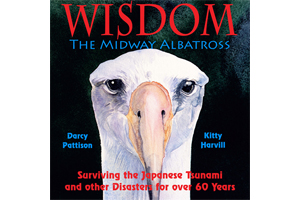 IBooks, through itunesconnect.apple.com has one of the widest distribution systems. Using Apple’s free iBooksAuthor program, you can create an iBook version of your story, and upload it to 51 countries. Here’s my book, WISDOM, THE MIDWAY ALBATROSS on the IBookStore, which allows a download to your iPad. It is also available worldwide. Sounds cool to say that, doesn’t it? (Well–it’s only available in an English language translation, but hey, still sounds good.)
IBooks, through itunesconnect.apple.com has one of the widest distribution systems. Using Apple’s free iBooksAuthor program, you can create an iBook version of your story, and upload it to 51 countries. Here’s my book, WISDOM, THE MIDWAY ALBATROSS on the IBookStore, which allows a download to your iPad. It is also available worldwide. Sounds cool to say that, doesn’t it? (Well–it’s only available in an English language translation, but hey, still sounds good.)
Just the logistics of translation and marketing in a foreign country scare off most authors. But–it is possible.

Ninth Letter is pleased to announce our first annual Literary Awards competition! We'll be accepting entries from March 1 to April 20 for our Literary Awards in four categories: Fiction, Poetry, Creative Nonfiction, and Literature in Translation. The winner selected in each category will receive a $1000 prize and publication in our Fall/Winter 2013-14 issue (vol. 10, no. 2).
The fee for entering each of the four categories will be $17, and all entrants will receive a one-year subscription to Ninth Letter.
Guest judges will be Margot Livesey (fiction), G. C. Waldrep (poetry), Lia Purpura (creative nonfiction), and Alexis Levitin (literature in translation).
For complete guidelines and to enter, visit our website.
View Next 17 Posts
 I know it gets confusing but this list is a bit different from the Calde-not list from a couple days ago. The reason is simple. While the Calde-not list looks primarily at books with illustrations so distinguished they could easily win major illustration awards if given half a chance, this is list is more for those books that may not blow you away on a first glance, but that make our publishing landscape richer for their very existence. I was inordinately pleased after I read each and every one of these books. They’re a little peculiar, distinctly different from what you’ll find in the American market, and altogether remarkable.
I know it gets confusing but this list is a bit different from the Calde-not list from a couple days ago. The reason is simple. While the Calde-not list looks primarily at books with illustrations so distinguished they could easily win major illustration awards if given half a chance, this is list is more for those books that may not blow you away on a first glance, but that make our publishing landscape richer for their very existence. I was inordinately pleased after I read each and every one of these books. They’re a little peculiar, distinctly different from what you’ll find in the American market, and altogether remarkable.


























 " Saucy is a real character dealing with real stuff—hard stuff that doesn’t have easy answers, not in real life and not in fairy tales, either. This is a really compelling and ultimately hopeful story. Highly recommended."
– Debby Dahl Edwardson, National Book Award finalist and author of My Name is Not Easy
" Saucy is a real character dealing with real stuff—hard stuff that doesn’t have easy answers, not in real life and not in fairy tales, either. This is a really compelling and ultimately hopeful story. Highly recommended."
– Debby Dahl Edwardson, National Book Award finalist and author of My Name is Not Easy


 Keep your students reading all summer! The lists for 2nd, 3rd and 4th, include 10 recommended fiction titles and 10 recommended nonfiction titles. Printed double-sided, these one-page flyers are perfect to hand out to students, teachers, or parents. Great for PTA meetings, have on hand in the library, or to send home with students for the summer. FREE Pdf or infographic jpeg.
Keep your students reading all summer! The lists for 2nd, 3rd and 4th, include 10 recommended fiction titles and 10 recommended nonfiction titles. Printed double-sided, these one-page flyers are perfect to hand out to students, teachers, or parents. Great for PTA meetings, have on hand in the library, or to send home with students for the summer. FREE Pdf or infographic jpeg.

Great post. In addition to librarians, I’d say do whatever can be done to get classroom teachers on board. But boy is it challenging right now as so many in this country seem to want nothing to do with other places and people. If there are those who see no need for windows to our backyards how do we get them to consider putting in telescopes so as to look further?
Great post Betsy! Sorry we missed each other at ALA. There is also the International Librarian Network (ILN) which is a great resource for mentoring and connecting with international peers from more than 60+ (maybe even more?) countries.
Worlds of Words is housed at the University of Arizona in Tucson, and it truly is a wonderful collection. There are many resources for educators and researchers; most are on-line at http://www.wowlit.org.
I forgot to mention that one! Thanks for the tip, Amie, and doggone it! You were there too? Next time I’m coordinating better.
Thank you for this thorough report and for your support of international children’s literature in translation. I’m glad you appreciated my piece for The Hub and look forward to writing more. And your point about reviewers and small presses, recognizing those that take chances on books from other countries, is an important one. I’m now translating children’s books from Portuguese and Spanis to English and am very much aware that we translators are our authors’ representatives in the new country.
Thanks for bringing attention to this important topic, Betsy. As a former editor of BOOKBIRD, I appreciate the shout-out to that great journal and would recommend the other resources that IBBY.org offers– including International Children’s Book Day and the biennial IBBY Congress. (The next one is next month in New Zealand!) ALA also has an ongoing relationship with IFLA which also has a conference (annually) and several sections devoted to literacy and libraries for children. Of course the Bologna Book Fair every spring is a huge event in the international children’s book community! And I would also recommend the International Youth Library in Munich, Germany, which offers stipends for research and publishes a great list of international children’s books called the White Ravens list. All FYI.
Take a look at this essay we just posted by Elena Abós: http://www.hbook.com/2016/07/creating-books/foreign-correspondence-translator-trafficking-between-cultures/
Thank you for this thorough report! I translate children’s lit from Japanese to English and long to see more titles “cross the pond.” Here is a piece I wrote for Literary Mama on the subject:
http://www.literarymama.com/columns/fourworlds/archives/2014/08/we-need-translated-books.html
Also, the Society of Children’s Book Writers and Illustrators has a member category for Translators now. I serve as International Translator Coordinator and can receive inquiries at: itc [at] scbwi.org
Many thanks again!
You mention “top 10″ lists, which reminded me of a project of IFLA’s Libraries for Children and Young Adults section (mentioned by Sylvia above) — The World Through Picture Books: Librarians’ favourite books from their country. Librarians from around the world selected ten books, still in print at the time (though not necessarily translated into English) to represent their country for this annotated bibiiography, which is available as a pdf at the link below: http://www.ifla.org/node/6718
I have also created several lists of picture books from other countries that are well suited for sharing in storytime: http://globalreading.weebly.com/storytimes.html — with the idea being that we don’t need a special occasion, or an international storytime theme to share books from other countries, but rather that these books can be incorporated into what librarians are already doing, into our everyday practice.
Thanks for coming and for the great recap of our panel, Betsy!